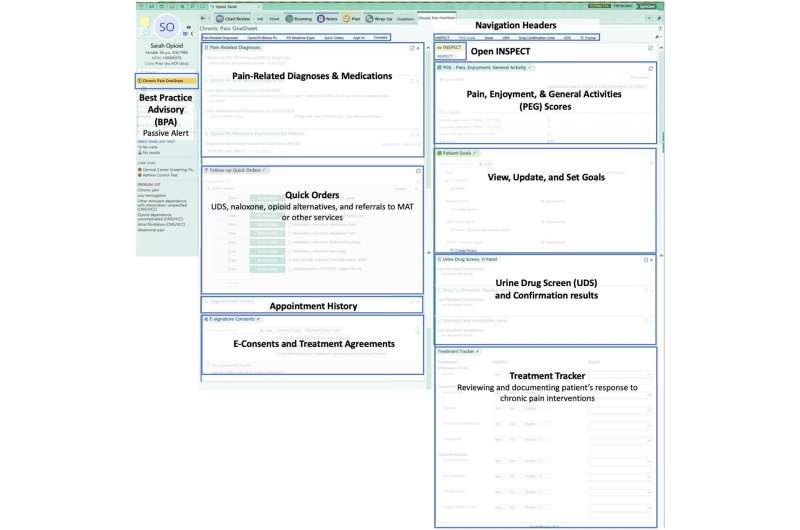New tool helps primary care providers address chronic pain and opioid prescribing

The Chronic Pain OneSheet, a clinical decision support tool developed by the Indiana University Richard M. Fairbanks School of Public Health, is now available for all primary care providers this month at Eskenazi Health.
Designed to help primary care providers treat patients with chronic pain, OneSheet aggregates all relevant pain-related information in one place in a patient’s electronic health record.
“This tool allows clinicians to quickly access key information and take clinical action for patients with chronic pain,” said Dr. Olena Mazurenko, co-principal investigator and associate professor of health policy and management at the Fairbanks School of Public Health. “For the first time, in one place, clinicians can review a patient’s chronic pain history, treatment plans, treatment-related risks, outcome and goals.”
Previously, providers had to toggle between multiple sections of a chart to assess this information while talking to a patient.
OneSheet makes it easier to safely prescribe opioids. A quick orders section of the tool allows providers to prescribe Naloxone or make referrals to specialists. Another section links directly to Indiana’s Prescription Drug Monitoring Program (INSPECT), which transfers data into electronic health records and pharmacy management programs.
“Providers can easily evaluate risk by viewing pain related medications, diagnoses and urine drug screens and confirmation results all on one screen,” said Mazurenko.
A provider can create an opioid treatment agreement with OneSheet for the patient and provider to sign together. The treatment tracker also suggests non-opioid treatments.
“Managing chronic pain is complicated enough already,” said Dr. Ellen Fan, family medicine specialist at Eskenazi Health Center. “A centralized convenient resource makes a world of a difference—in helping clinicians find relevant information, provide appropriate care, and educate patients about tools to reach their treatment goals.”
The tool was developed in collaboration with Wake Forest University researchers and Eskenazi Health clinicians in 2018. After a draft of the OneSheet was launched in 2019, the research team conducted a randomized control trial to implement the tool from October 2020 to May 2022.
Source: Read Full Article
